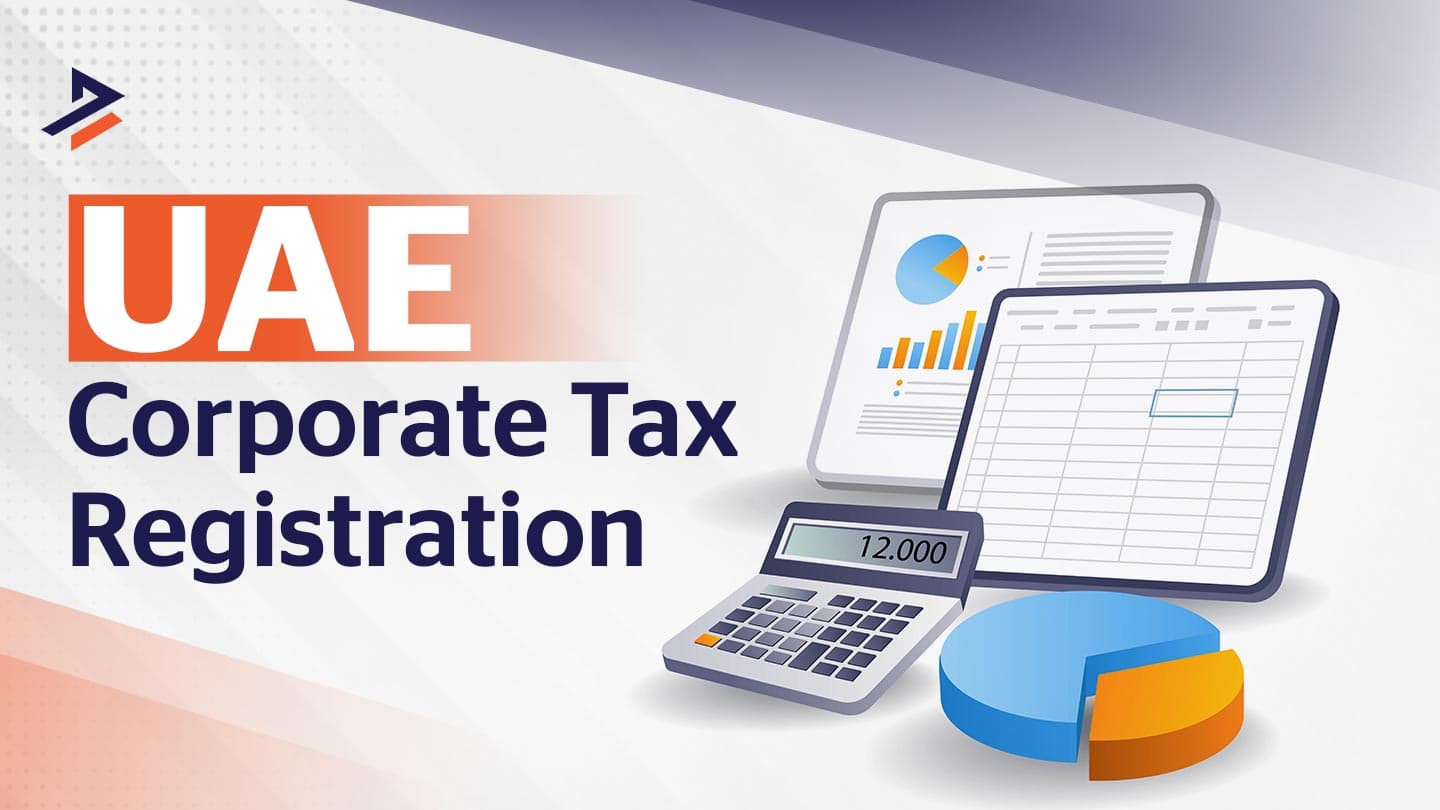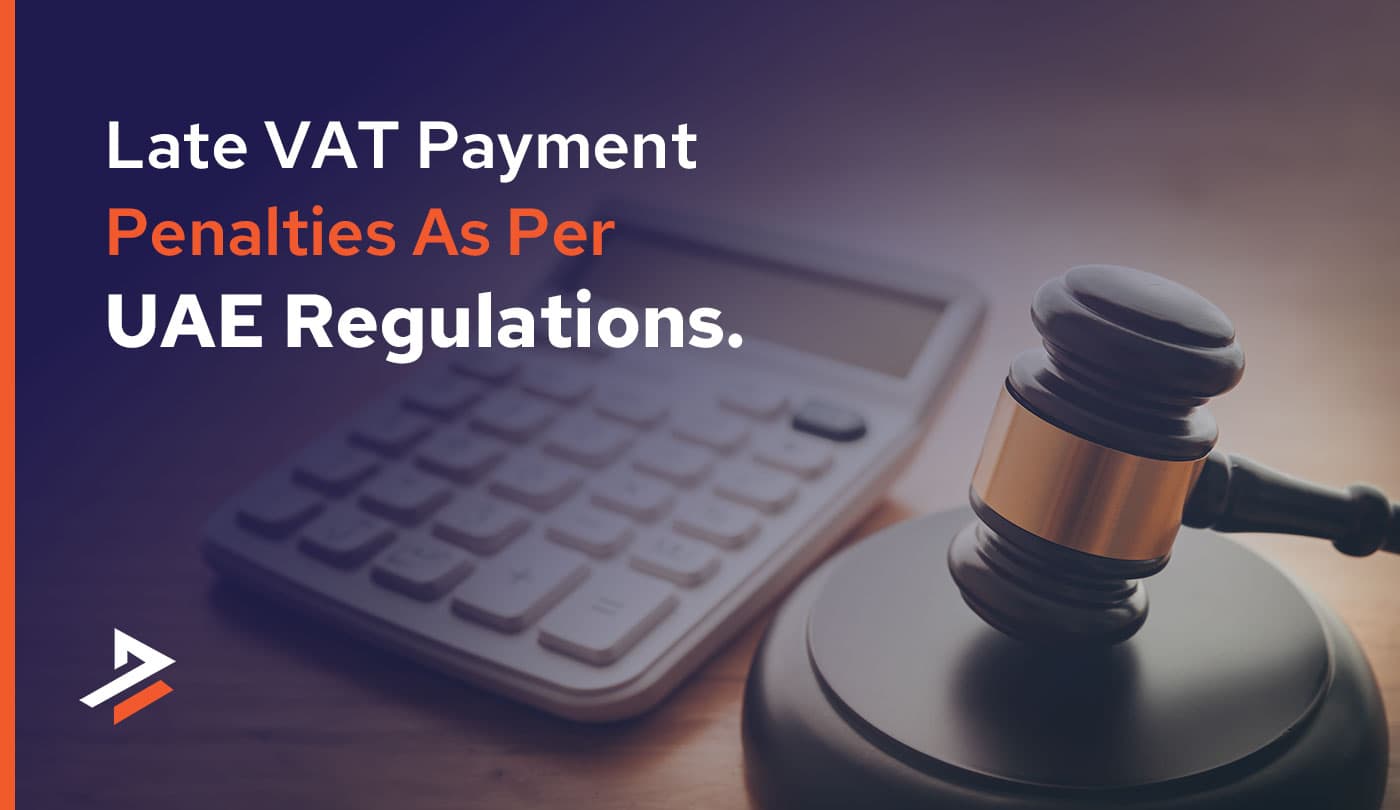Can you guess what is the most attractive benefit of starting a business in the UAE? Well, it is the liberal tax policies which help businesses save a huge chunk of their hard-earned profits. The latest regime of corporate tax in UAE, which came into effect after June 1st, 2023, has made some essential contributions to UAE’s fiscal landscape.
If you also plan to start your venture in UAE or are already operating there, then understanding the corporate tax system of the nation is undoubtedly important for you. The concept in itself can be overwhelming at first. That is why this guide has been created, to make you understand the UAE corporate tax in the easiest manner.
Having a good understanding will help you stay compliant and optimize your tax position in the nation.
What is corporate tax in UAE?
Corporate tax in UAE is a type of direct tax which is imposed on the taxable income of the businesses and companies. You may come across terms like “corporate income tax” or “business profits tax”, it all refers to the corporate tax only.
How is corporate tax charged in UAE?
UAE corporate tax is charged on a business’s profits, known as taxable income, and is payable on yearly basis. It is paid for a financial year comprising of 12 months for which financial statements are prepared or a part thereof. This time frame for which a tax is to be paid is called “tax period” and the payer is called the taxable person.
Taxable income is calculated by deducting any exemptions or tax credits from the actual total income earned by business. For any taxable person, the corporate tax becomes due within the 9 months from the end of applicable tax period.
What is corporate tax rate in UAE?
The current corporate tax rate applicable in the UAE is as follows:
- Where taxable income is below AED 375,000*: 0% corporate tax on that portion of the taxable income.
- Where taxable income exceeds AED 375,000*: A standard UAE corporate tax rate of 9% applies on that portion of taxable income.
Here is an example to simplify:
A business earns a total profit of AED 500,000 for a particular tax period. Let us assume there are no tax adjustments, thus its taxable income will be AED 500,000. Here is how the corporate tax liability will be computed:
- For the first AED 375,000 of taxable income, 0% corporate tax is imposed.
- For the remaining taxable income exceeding AED 375,000, which in this case is: AED 500,000 − AED 375,000 = AED 125,000, 9% corporate tax is imposed on this amount.
Therefore, the tax liability would be: 9% × AED 125,000 = AED 11,250.
Who has to pay corporate tax in UAE?
Entities who have to pay corporate tax in Dubai, called as taxable persons, can be either resident or non-resident. In simple terms, the following entities are subject to corporate tax in UAE:
A. Resident taxpayers in UAE
1. Juridical person registered in UAE, or a foreign juridical person managed and controlled in UAE:
A juridical person basically means a legal entity that has its own existence in the eyes of the law. This includes entities such as joint liability companies, limited partnership companies, limited liability companies, private and public joint stock companies, as well as foundations and trusts established on the mainland.
Any of such juridical person is considered to be a resident and eligible for corporate tax in UAE if it meets any of the following criteria:
- It is registered, established, or recognized in the UAE, including free zones.
- It is registered, established, or recognized outside the UAE but is mainly controlled and managed in the UAE, meaning its major decisions are made within the UAE.
B. Non-resident taxpayers in UAE
1. Non-resident juridical persons permanently established in UAE:
A foreign juridical person that has a significant presence in the UAE is also required to pay corporate tax. These include:
- A non-resident person who has been conducting business through a permanent place in the UAE, such as a factory or an office, for 6 months or more.
- A non-resident person who has some other person conducting business in the UAE on their behalf.
2. Non-resident persons deriving income from UAE sources:
Any non-resident person who earns income in the UAE, such as from the sale of goods, or movable or immovable property in UAE, will be subject to corporate tax. However, such income must be:
- Earned from a resident person in UAE, or
- Earned from a non-resident person’s permanent establishment in the UAE, or
- Earned from activities or contracts performed within the UAE
3. Non-resident juridical persons having nexus in the UAE:
A non-resident person who earns income from immovable property in the UAE is considered to have a nexus in the UAE and that income will be subject to corporate tax.
Immovable property includes land, buildings, structures, or equipment attached to land or buildings. Income may be earned through various means such as the sale, letting, subletting, direct use, or disposal of the property.
Who is exempted from corporate tax in UAE?
Let us now talk about exemptions! Certain entities under specific conditions do not have to pay corporate tax in Dubai at all and can keep the profits to themselves. UAE corporate tax exemptions include:
A – Exempted persons:
- Government entities and government-controlled entities
- Entities established for public welfare or social goals
- Oil, gas, and other natural resource activities taxed at Emirate level
- Qualifying pensions, social security, and investment funds
B – Small business relief:
Any taxable person whose revenue is equal to or below AED 3 million in the relevant tax period, and all previous tax periods ending on or before 31 December 2026, will not have any taxable income in that period.
To be eligible for Small Business Relief, the entity must be a resident person in the UAE and must not be a financial institution or a holding company.
C- Qualifying freezone person:
UAE freezone business setup can benefit from a 0% corporate tax rate on qualifying income if they meet the following conditions:
- Must maintain adequate economic substance in the UAE.
- Must derive qualifying income
- Satisfies de minimis requirement
- Must comply with transfer pricing rules and documentation requirements under corporate tax law.
- Must prepare audited financial statements for tax purposes.
Qualifying income can be of two types:
- Income earned from transactions with other free zone persons (excluding income generated from excluded activities).
- Income earned from transactions with non–free zone persons (domestic or foreign), provided the income is not from excluded activities.
Qualifying activities whose income carries no tax:
The qualifying activities which will be subject to 0% corporate tax in UAE consist of such as:
- Goods and material manufacturing
- Goods and material processing
- Holding securities and shares
- Owner or manager of ships
- Fund management services under regulation of relevant UAE authority
- Wealth and investment management services under regulation of relevant UAE authority
- Headquarter services to related parties
- Treasury and financing services to related parties
- Logistics services
Please note that the list of activities is subject to government regulation changes. You can check the latest with government official guidelines.
Excluded activities whose income carries tax:
Income from the non-qualifying activities will be subject to 9% corporate tax rate. These activities include:
- Activities that are regulated by their relevant competent authority such as banking, insurance, finance, and leasing, other than exceptions
- Transaction with natural persons, except if they come under qualifying activities
- Ownership or exploitation in intellectual property assets
- Ownership or exploitation of UAE immovable properties, under specific conditions
Please note that the list of activities is subject to government regulation changes. You can check the latest with government official guidelines.
How to file for UAE corporate tax return
If you are eligible to file a corporate tax return in the UAE, you must do so to stay legally compliant. Here is a step-by-step guide for filing UAE corporate tax returns:
Step 1. Register for corporate tax in UAE:
First of all, you must ensure you are registered on the official tax portal of the Federal Tax Authority (FTA). To do this, create an account on the portal and enter your business details. After successful registration, you will receive your Tax Registration Number (TRN) from the FTA.
Step 2. Gather the necessary documents:
To file a corporate tax return, you will need your financial statements, revenue and expense reports, and tax adjustment documents, among others. Make sure all documents are accurate and complete for the concerned taxable period.
Step 3. Calculate taxable income:
You can compute your final taxable income by deducting any allowable deductions and exempted income from your total revenue.
Step 4. Fill in the corporate tax return form:
In the corporate tax return form, you must provide company details, your TRN, taxable income computation, and any applicable tax reliefs or credits. This form is easily available online through the official FTA website. Be careful while filling in the details.
Step 5. Submit the tax return:
After confirming that the information is correct, click on “Submit” to file your tax return. Upon successful submission, you will receive a confirmation receipt from the FTA.
Deadline:
Tax returns must be submitted within 9 months of the end date of your taxable period. For example, if your taxable period ends on 31st December 2025, your tax return would be due by 30th September 2026. Late filing can result in penalties, so it is important to file on time.
Step 6. Maintain tax records:
The FTA may request tax records for audits or verification purposes. Therefore, you must keep these records for at least 7 years after filing.
Documents required for corporate tax registration
Certain documents must be submitted when filing a corporate tax return in the UAE, such as:
- Trade license copy
- Emirates ID and passport copies of owner/partners/shareholders
- Memorandum of Association, if needed
- Financial statements
- Documents supporting deductions such as receipts or invoices
- Calculations of taxable income
- Record of exempted income, if applicable
Please note that documentation requirements are subject to change. Filing corporate tax in UAE is a very critical process, and it is better to seek expert help, like from Dubai tax experts.
How Dubiz corporate tax services can help?
Dubiz Business Setup can help you stay compliant by taking care of your corporate tax registration and filing in the UAE. UAE is one of those countries that offers huge flexibility when it comes to all kinds of taxes, including corporate tax. When operating or running a business in the UAE, you must be well aware of your tax responsibilities, whether you are eligible to pay or not.
Dubiz tax experts can help you understand tax position of your business setup in Dubai. We can help you with ascertaining your tax liability accurately, obtaining TRN, preparing audited financial statements, and filing on time, which can save you from penalties and fines.
Contact us today for professional tax and accounting services in Dubai:
📞 Call: +971 56 369 5485
💬 WhatsApp: +971563695485
📧 Email: info@dubiz.co
Frequently Asked Question(FAQs)
1. What is the penalty for not filing a corporate tax return on time in the UAE?
If any entity fails to file their corporate tax return in UAE before the deadline for submission, they will face a penalty of AED 500 per month or part thereof for the first 12 months and AED 1,000 per month or part thereof from the thirteenth month onwards.
The penalty is usually imposed on the next day following the expiry of the time limit, or on the same date on a monthly basis thereafter.
2. Do free zone companies pay corporate tax in the UAE?
In the UAE, the corporate tax law allows qualifying free zone companies to pay 0% corporate tax on their qualifying income. However, other income which does not come under qualifying income would be subject to the standard 9% tax rate. However, registration for corporate tax is required in all cases.
3. Is there 0% corporate tax in UAE?
There is 0 percent corporate tax in UAE for taxable income up to AED 375,000.
4. Is Dubai a tax haven city?
Dubai is known to be a tax haven city across the world as there is no tax charged on private income. Dubai corporation tax is only applicable when a business exceeds a certain threshold.
5. What is corporate tax filing deadline in Dubai?
Corporate tax filing must be done within nine months from the ending date of relevant tax period.




